A man of feelings
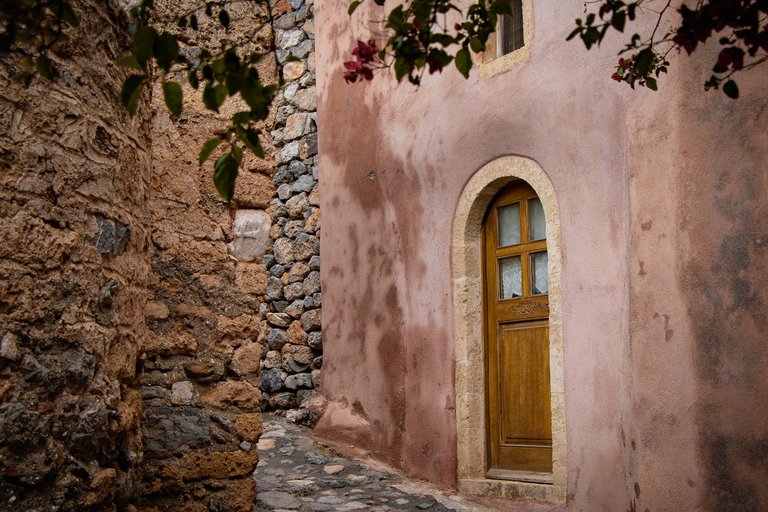
I started learning English when I was six years old.
Back then, most children in Greece didn’t begin until a little later, usually around the age of eight or nine. But my godmother, who was herself an English teacher, believed that the earlier you started, the better your chances of developing a natural feel for the language. She insisted, and so I began. Looking back now, I think she was right.
For about ten years, English was a steady part of my life. Lessons, exercises, tests, reading short stories, even watching films with subtitles. It became an integral part of my education. But when I reached high school, my priorities shifted. The pressure of schoolwork grew heavier. All my energy had to turn toward preparing for the big national exams at the end of secondary education. Exams that would determine the university I could enter and, in some ways, the path my life would take.
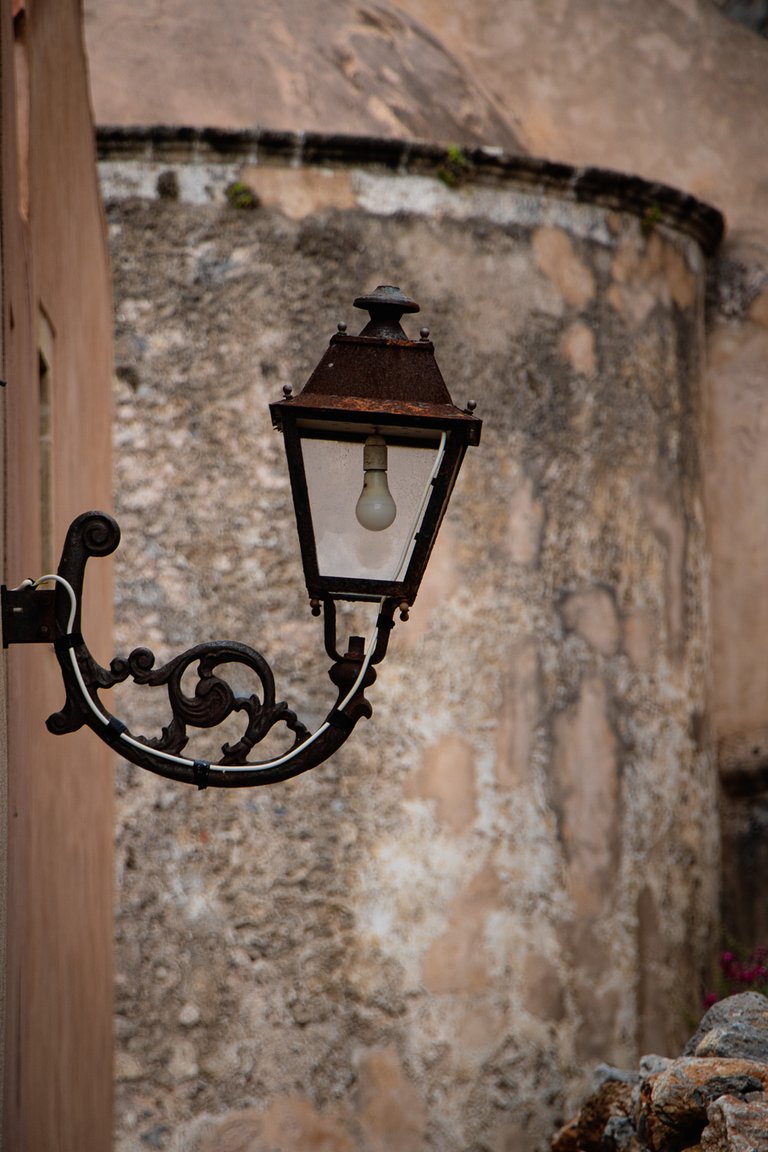
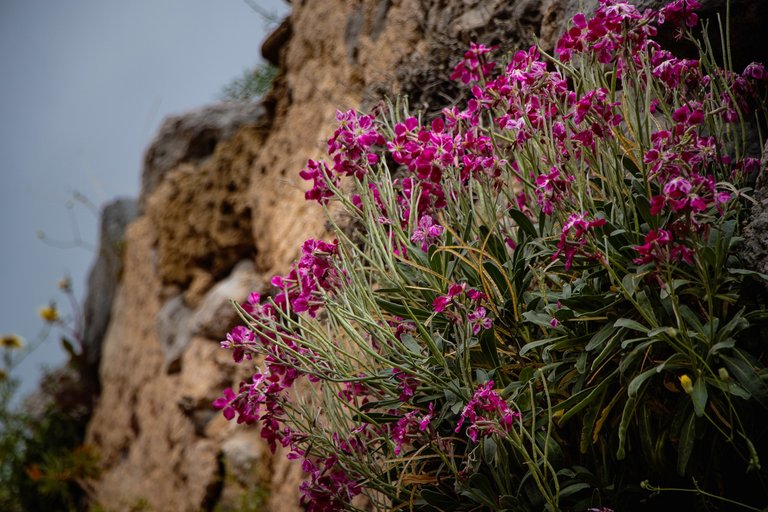
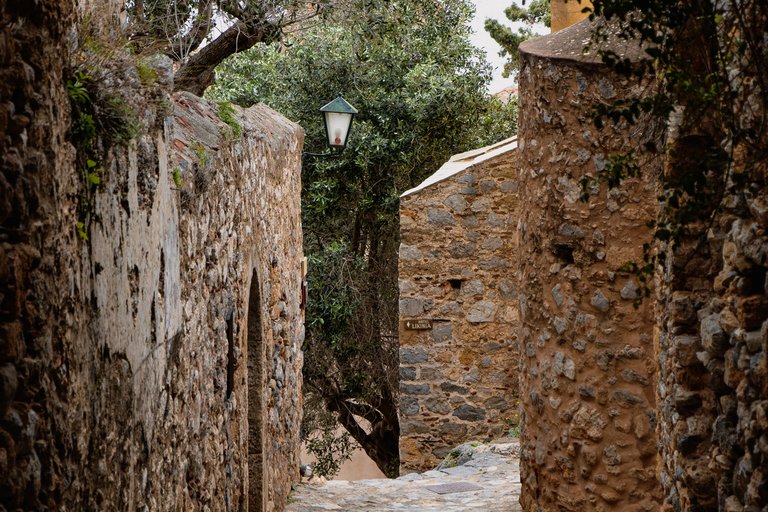
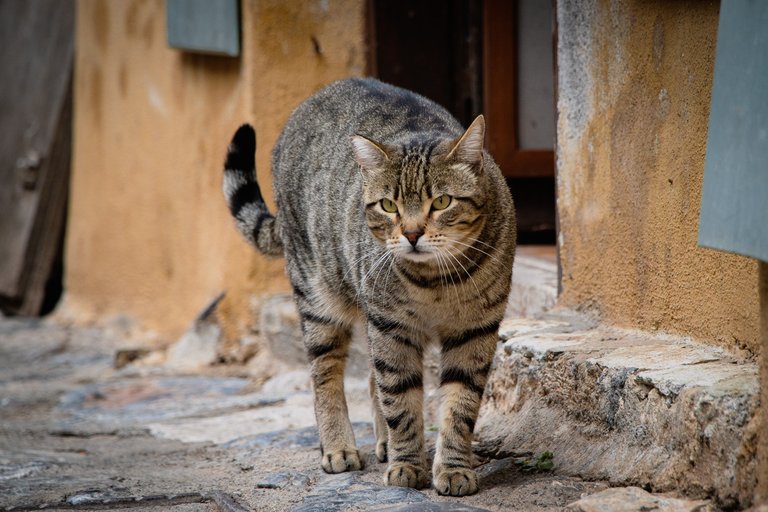
So, I gave up on English. At the time, it felt like the practical choice. But now, I regret that decision.
I may have been fairly good for my age back then, but I had so much more to learn. I didn’t realize it at the time. Somehow, I believed that what I already knew would stay with me forever. But years later, when I started blogging (about seven years ago) I was stunned to see how much of that knowledge had slipped away. My grammar was shaky, my vocabulary felt limited, and I often struggled to find the right words. It was a humbling discovery.
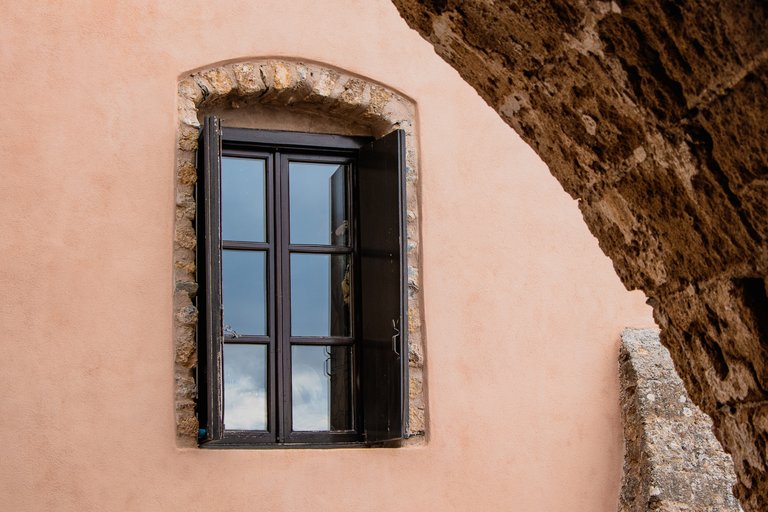
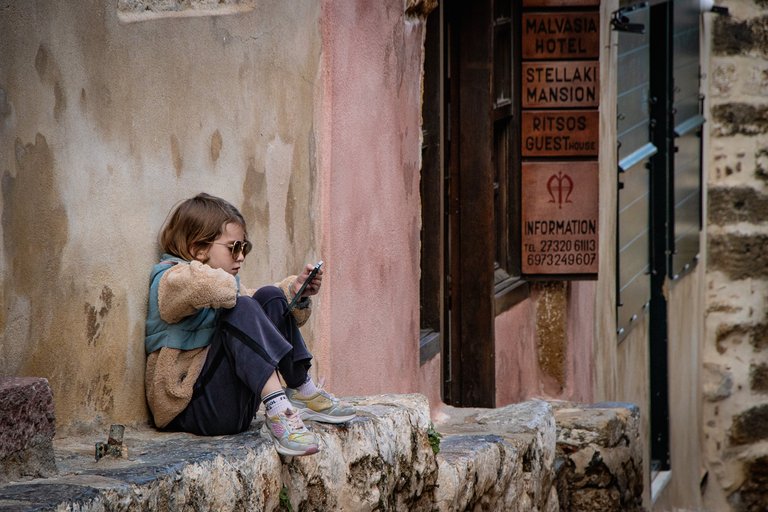
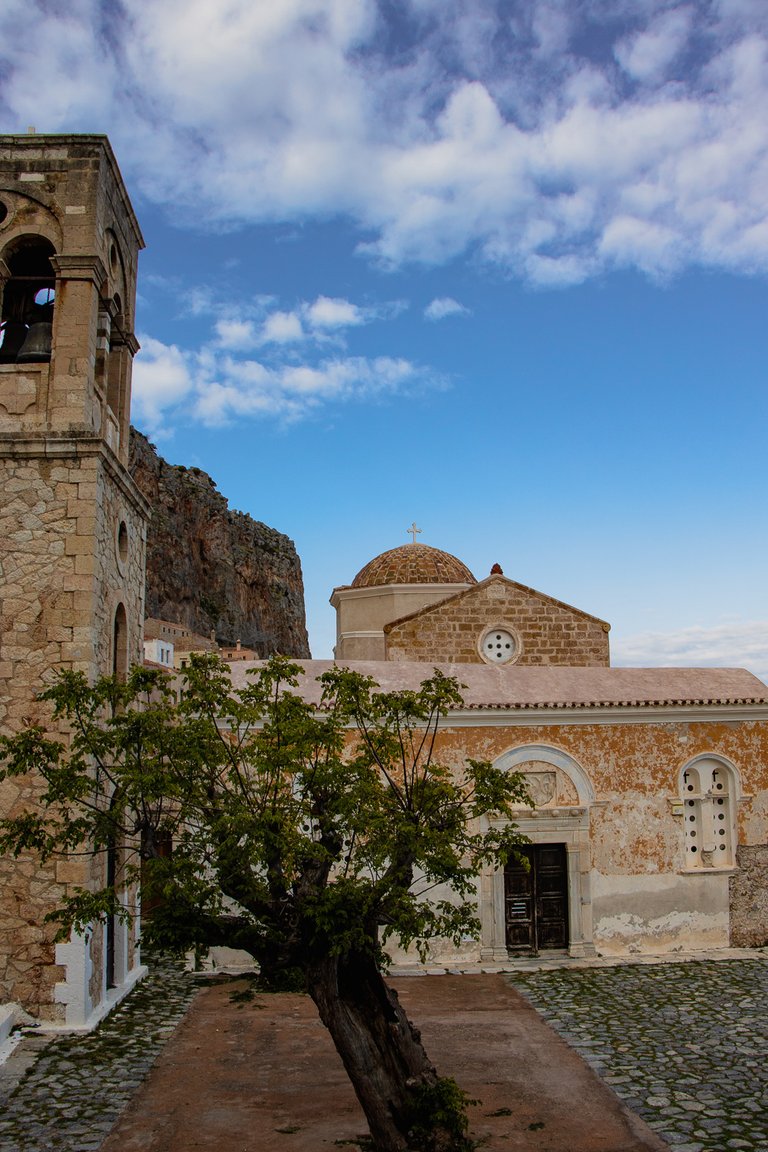
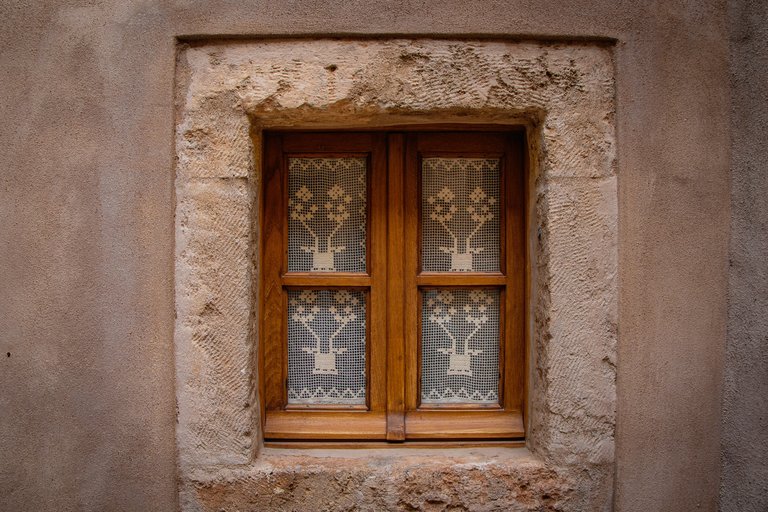
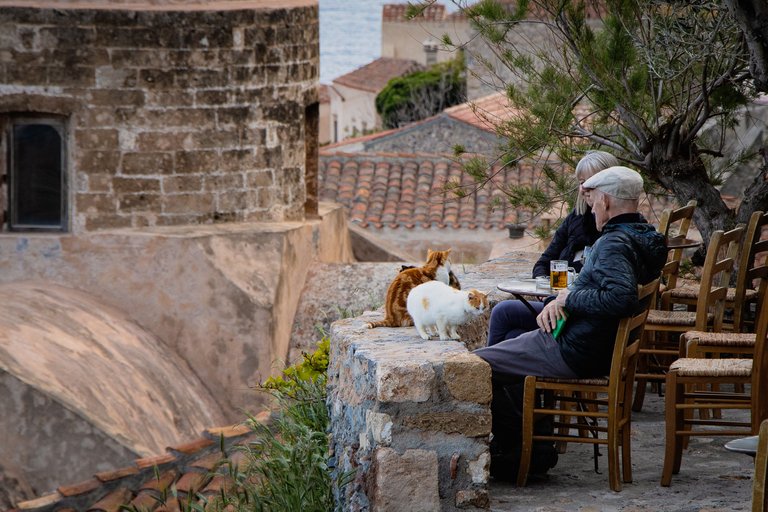
But what reminded me today of my English education and of my godmother in particular, was something she always told us: that to truly learn a language, we had to think in it. It sounded simple back then, almost like a trick. But the older I get, the more I see how true it is.
I remember once trying to translate something I had written in Greek into English. The result felt completely wrong. The sentences were stiff, the rhythm off. It didn’t sound like me anymore. Eventually, I had to set aside the Greek version entirely and start again from scratch in English. Only then did it flow, only then did it feel real.
And that’s why I hold translators in such admiration, especially those who work with literature. To carry not only the meaning of words but also the tone, the rhythm, the soul of a piece of writing. What a responsibility, what a monumental task. I often wonder how they manage it.
But poetry seems even more impossible. How can anyone translate not just the words but the emotion, the music, the silences between the lines? Personally, I would never dare to try. To be honest, I’m not sure it’s truly possible at all.
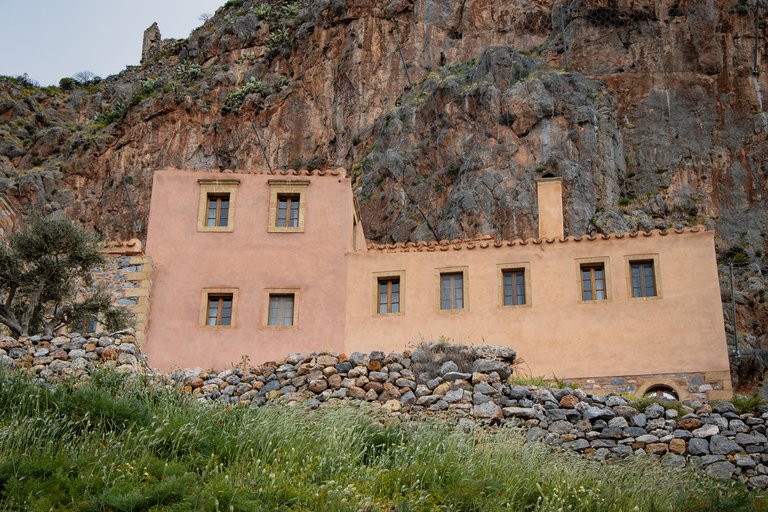
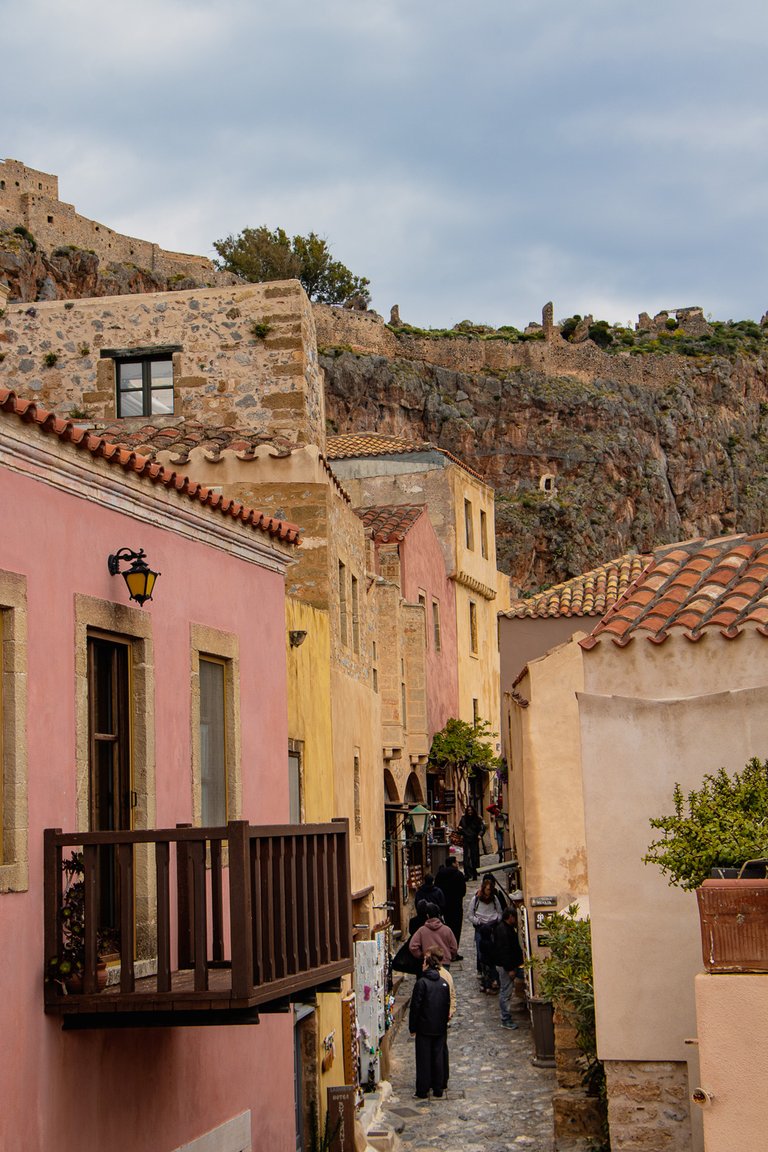
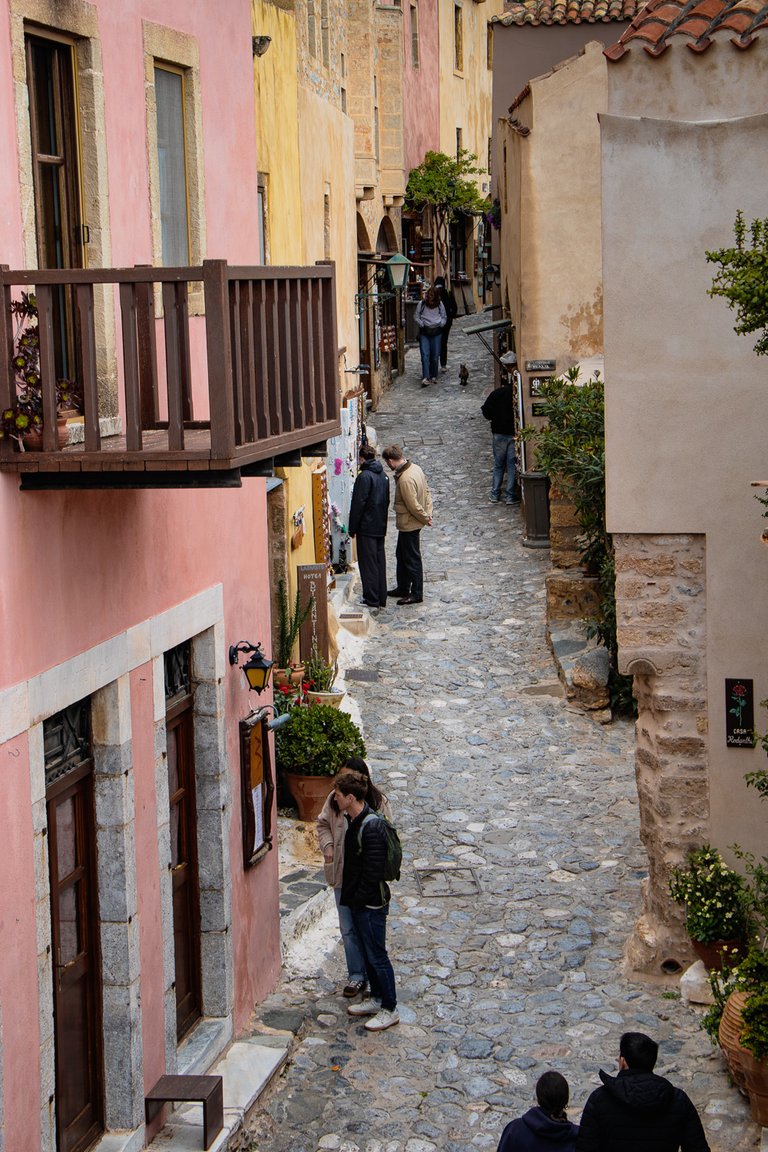
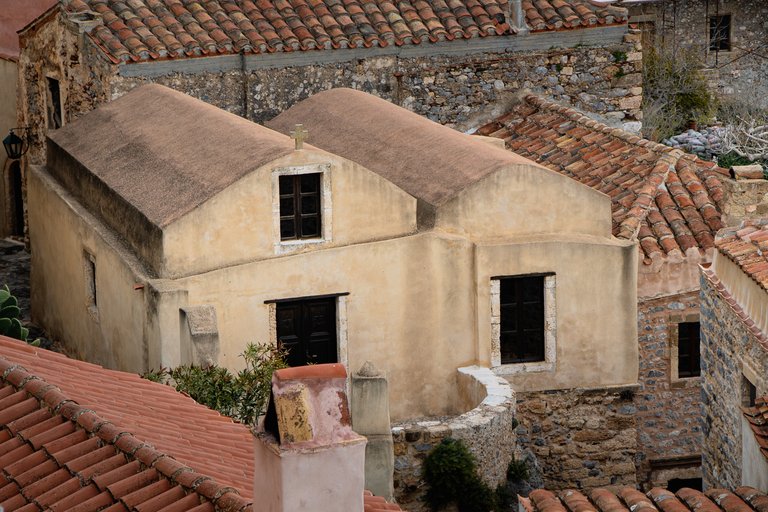
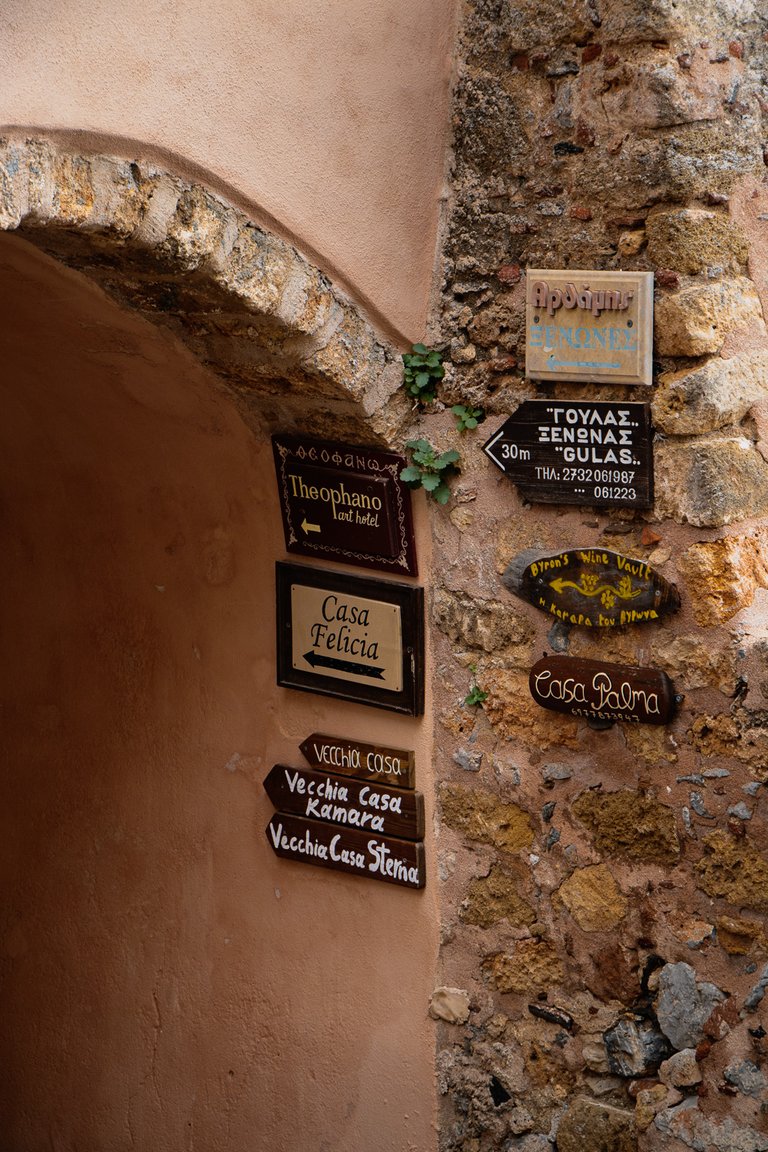
Which brings me to today’s theme: Yannis Ritsos, one of the greatest Greek poets. He was born in Monemvasia, a small castle town on the southern coast of Greece. His name and that place are inseparable, you cannot think of one without the other.
In the photo below, you can see his house, still standing quietly in the old town. In front of it, a statue with his face carved in marble watches over the horizon. Nearby, there is a plaque with a short excerpt of his writing, printed in both Greek and English. I understand why it’s there, thousands of visitors from all over the world come to Monemvasia each year, eager to connect with its history and culture. The translation gives them a glimpse, an entry point.
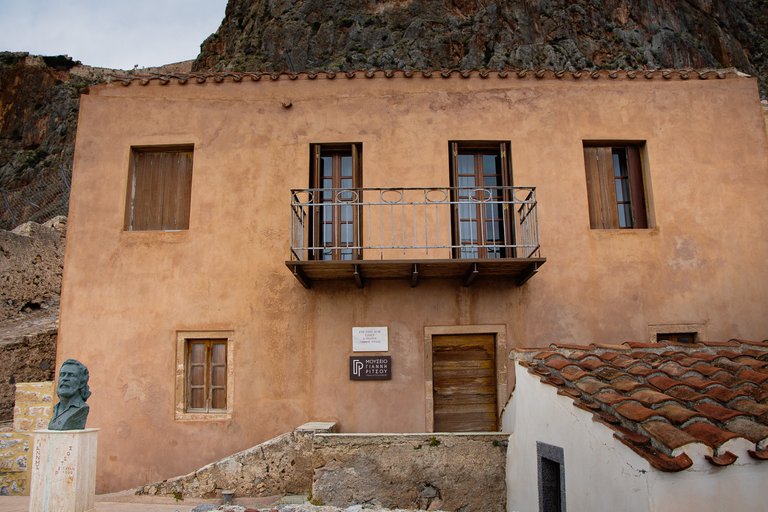
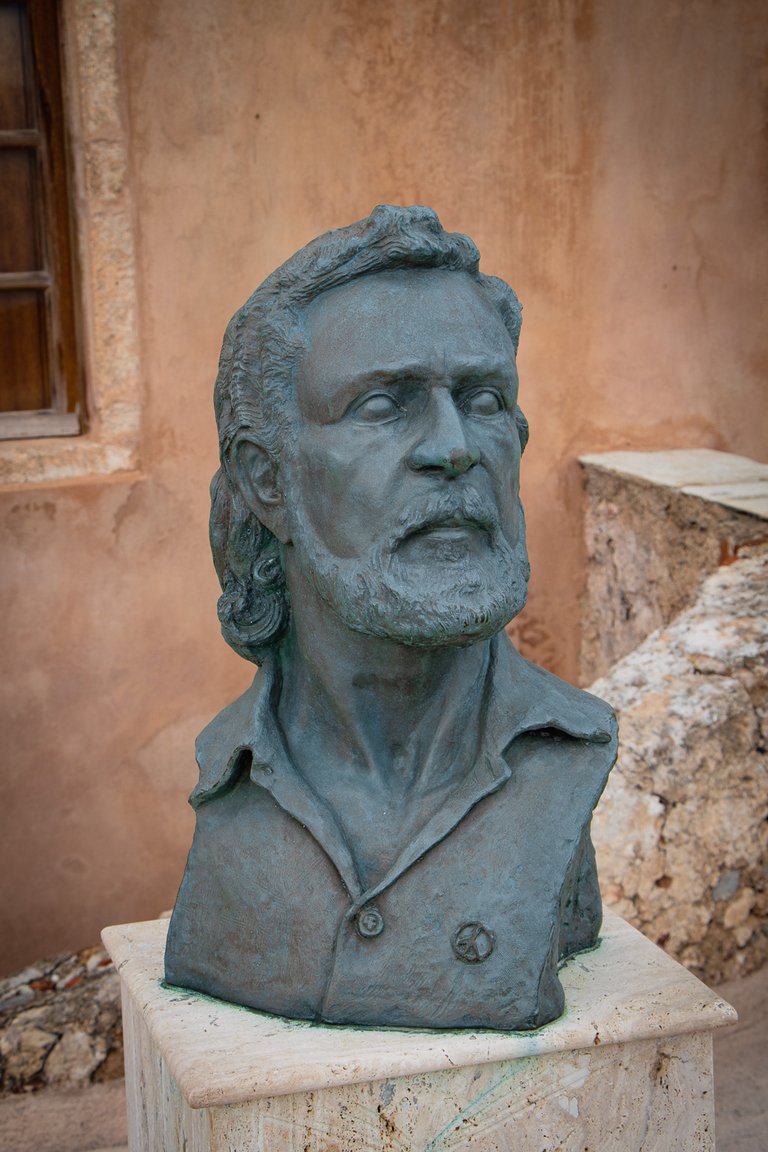
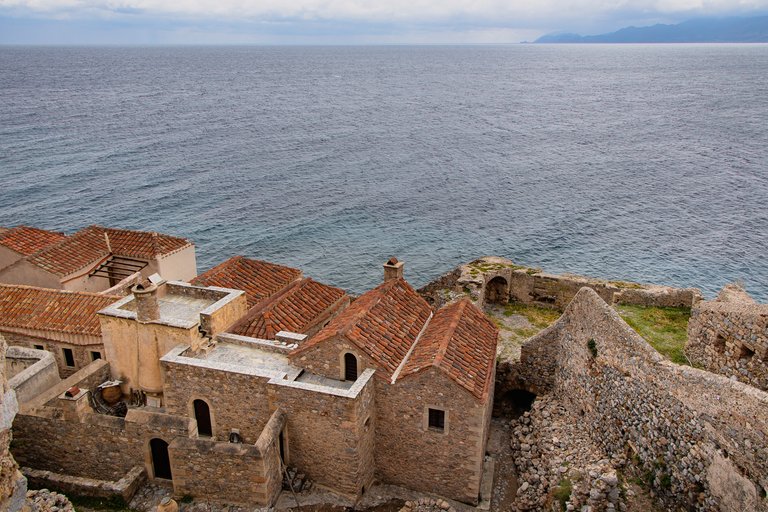
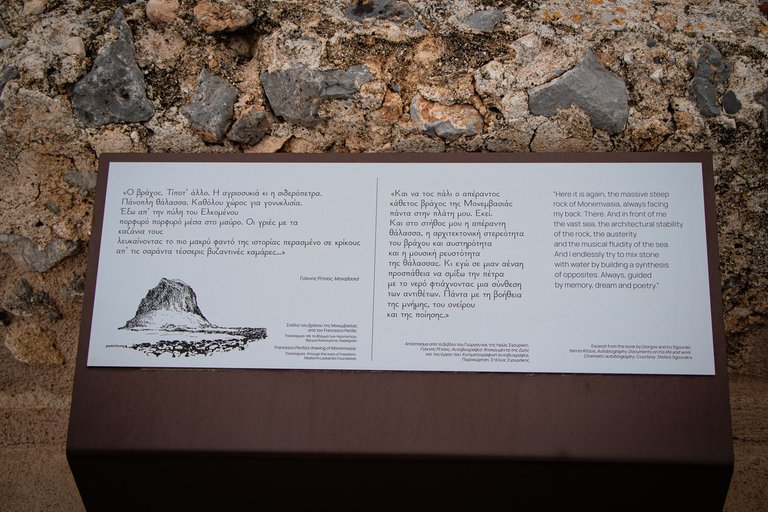
And yet, when I read the English version, I felt a touch of sorrow. The words were there, yes. But the meaning, the feeling, the delicate music of the original Greek, all of it seemed lost. It was like seeing a photograph of a painting you love, flat and drained of its colors. Necessary, perhaps, but still a kind of loss.
If I had to name one difference between literature and poetry, I would say (though it’s not always true) that literature often puts thoughts on paper, while poetry puts feelings.
And Ritsos was, above all, a man of feelings.
The first post was:
the second
the third
the forth
and the fifth
The camera that I used is a Canon EOS 850D with an EF-S 18-135mm lens attached. I edited the photographs in Adobe Photoshop Lightroom Classic
Thank you for reading and if you want to know more about me you can check out my introduction post.
Commenting, upvoting and rebloging are highly appreciated!
Thank you very much @qurator and @ewkaw for your support, much appreciated!
You are a high-end street photographer, my friend!!!!... What a photo!!!
Thanks a lot :)
!discovery shots
This post was shared and voted inside the discord by the curators team of Discovery-it in collaboration with Visual Shots community.
Discovery-it is also a Witness, vote for us here
Delegate to us for passive income. Check our 80% fee-back Program
Αυτό είναι αλήθεια χαχαχα, σου το λέω εγώ που ανάλογα με την περίσταση ή τη διάθεσή μου σκέφτομαι στα ελληνικά, στα ισπανικά, στα εγγλέζικα και μάλιστα στα πορτογαλικά όταν θέλω να κάνω πλάκα και μιλάω σαν Βραζιλιάνα χαχαχα. Κάθε γλώσσα μου δίνει άλλη προσωπικότητα 🤫🤭🤭.
Υπάρχουν βιβλία, και ιδικά ποιήματα, που όσο καλά και να τα μεταφράσουν, χάνουν την πραγματική ουσία που τους έδωσε η πρωτότυπη γλώσσα στην οποία γράφτηκαν.
Τι ωραία που μιλάς τόσες γλώσσες!
Πολύ θα 'θελα να σ' ακούσω σαν Βραζιλιάνα κι ας μην καταλαβαίνω :)
Χαχαχα, ευχαριστώ, τα βραζιλιάνικα Πορτογαλικά δεν είναι ότι τα μιλάω πολύ καλά χαχαχα, αλλά τα έχω μάθει αρκετά και τα καταλαβαίνω, όλα βλέποντας το βραζιλιάνικο κανάλι διότι μου αρέσουν πολύ οι νουβέλες που κάνουνε χεχεχε, άμα μιλάς ισπανικά είναι εύκολα να την μάθεις αυτή την γλώσσα γιατί μοιάζουν. Δεν μου αρέσει όμως πώς τα μιλάνε οι Πορτογάλοι 😬, στην Βραζιλία είναι άλλο πράγμα 👌🏻χεχεχε.
Θέλω να μάθω γαλλικά τώρα, να δούμε άμα θα τα καταφέρω με τον Duolingo 🦉🇨🇵😬.
Congratulations @fotostef! You have completed the following achievement on the Hive blockchain And have been rewarded with New badge(s)
Your next payout target is 33000 HP.
The unit is Hive Power equivalent because post and comment rewards can be split into HP and HBD
You can view your badges on your board and compare yourself to others in the Ranking
If you no longer want to receive notifications, reply to this comment with the word
STOPCheck out our last posts:
Learning English is a bit hard. I, myself too need to read a lot in order to expand my vocabulary, especially in sentence construction.
Yes, reading and practice are necessary!